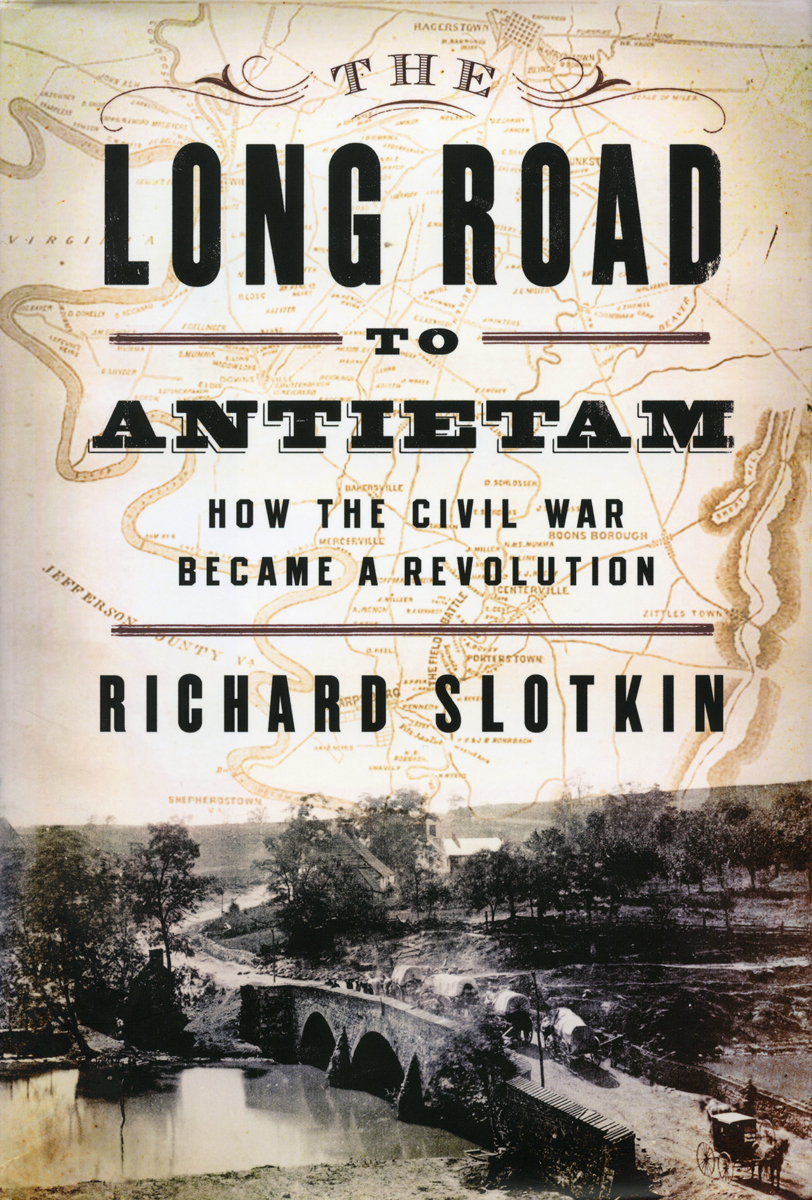
The Long Road to Antietam
How the Civil War Became a Revolution
By Richard Slotkin. 512 pp.
Norton/Liveright, 2012. $32.95.
Reviewed by Harold Holzer
WITH THE SESQUICENTENNIAL of the Emancipation Proclamation, a number of historians (including this writer) have turned to the subject of Abraham Lincoln’s most famous presidential order. Richard Slotkin has added significantly to the literature by focusing on the Union military victory that Secretary of State William H. Seward and eventually Lincoln viewed as a prerequisite to emancipation. To free the slaves after Federal disasters on the Virginia Peninsula and at the Second Battle of Bull Run, they both feared, would seem like an act of desperation. Lincoln concluded he must wait for a battlefield success, which finally came at the Battle of Antietam in September 1862.
That the fate of emancipation turned on the abilities of Major General George B. McClellan, who made no secret of his opposition to the freedom of slaves, is one of the supreme ironies of Civil War history. Slotkin evokes drama and, where appropriate, dark humor in recalling what became an extraordinary test of civilian authority over the military.
Slotkin’s superbly describes Robert E. Lee’s Maryland offensive that ended at Antietam, acknowledging almost reluctantly that McClellan’s efforts to check the Army of Northern Virginia stand as the most aggressive of his Civil War career. “Nevertheless,” he quickly adds, “his aggressive intent was modulated by the fundamental principle that forbade endangering the safety of his own force.” The author offers a rousing description of the battle itself—focusing, inevitably, on McClellan’s lost opportunity for a complete rout.
James M. McPherson, for one, has already identified Antietam as the most important battle of the war, because McClellan’s ultimate, if incomplete, success there enabled the president to issue his proclamation. And the order itself was—as McPherson has persuasively contended (with Slotkin’s hearty concurrence)—nothing less than a revolutionary act that shook the very foundations of American society. Slotkin makes a good case that a potential counterrevolution lurked, a “McClellan conspiracy” aimed ultimately at taking control of the White House—if not by open resistance, then in the 1864 election. Slotkin reminds us that in the wake of emancipation, this anti-Lincoln general may have seriously considered marching his army on Washington and taking over the country as a dictator. Only his innate patriotism and moves to quiet rebellious staff officers, McClellan later boasted, checked such a coup d’état. In truth, there is no convincing reason to believe that this bombastic but ineffectual commander would have had any better luck conquering the Union capital than he had in capturing the Confederate capital.
In Slotkin’s view, McClellan endured too long as commander because a frustrated and perhaps fearful Lincoln could not immediately answer this treacherous talk with a hard hand. The author portrays a president hoisted by his own petard: convinced of McClellan’s disloyalty or incompetence, either of which constituted “good grounds for relieving him of command,” but painfully aware that his success at Antietam made it harder to dismiss him. To do so, Slotkin astutely observes, “would vitiate the salutary political effects of the victory and provoke a military crisis while public opinion was still disordered by the Emancipation Proclamation and the suspension of habeas corpus—all on the eve of the midterm elections.”
Slotkin is an accomplished social historian (and novelist) with a focus on war and race, and he brings all his considerable skills to bear in this book. What makes even his unsurprising conclusions unfold at such a gripping pace is his great gift for narrative. It is as if Carl Sandburg were writing again—but with footnotes—for the author is a master at telling a story, capturing a mood, bringing characters to life, and making substantive and well-documented historical points in the bargain.
Perhaps the book breaks no new ground in Civil War or emancipation studies: McPherson and Stephen Sears (on the military side) have walked this road before. But Slotkin offers a beautifully crafted way to experience one of the great backstories of the era: how a deeply committed emancipator and a feckless general somehow came together (one willingly, the other kicking and screaming) to revolutionize the Civil War and the country itself. As Slotkin notes, the war would go on another two and a half years. But the country would never be the same again.
Harold Holzer is chairman of the Abraham Lincoln Bicentennial Foundation and the author of 42 books on Lincoln and the Civil War. He has won the National Humanities Medal and the Daughters of the American Revolution History Medal.





